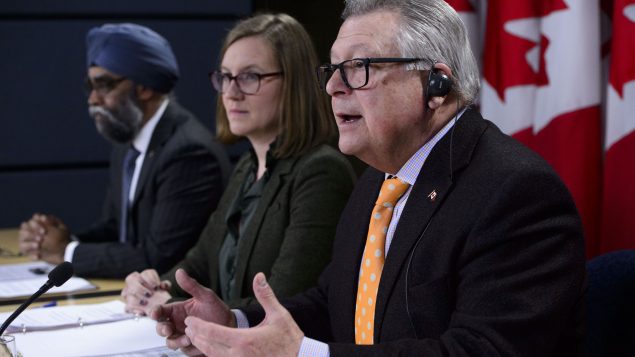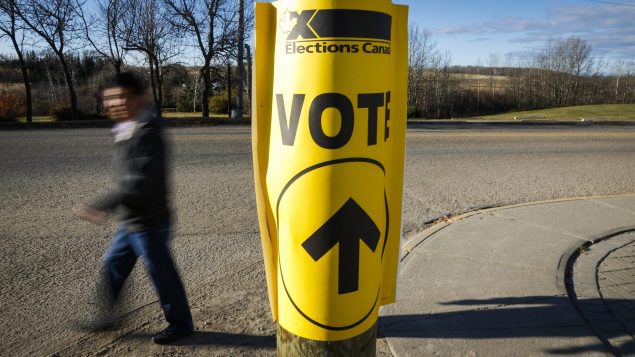Despite dire warnings in the run-up to the Oct. 21 federal election of possible foreign meddling in Canada’s democratic process, officials tasked with monitoring and preventing foreign interference did not “observe” any activity that merited sounding the alarm, according to the Privy Council Office.
In January, the Liberal government unveiled a series of new measures aimed at further beefing up Canada’s electoral system against foreign interference, and enhancing its ability to defend the democratic process from cyber threats and disinformation.
These measures included taking proactive measures to combat foreign interference, enhancing citizen preparedness, improving coordination between Canada’s security agencies and calling on social media platforms to take “actions to increase transparency, authenticity and integrity on their systems.”

Minister of Democratic Institutions Karina Gould, along with the Minister of Public Safety and Emergency Preparedness Ralph Goodale, and the Minister of National Defence Harjit Sajjan, make an announcement regarding safeguards to Canada’s democracy and combatting foreign interference during a press conference in Ottawa on Wednesday, Jan. 30, 2019. (Sean Kilpatrick/THE CANADIAN PRESS)
The Liberal government also set up a five-person panel of senior bureaucrats to sound the alarm when a serious attempt to meddle in the election by a foreign actor that could threaten the integrity of the electoral process was detected.
The Critical Election Incident Public Protocol consisted of the Clerk of the Privy Council, the federal national security and intelligence adviser, the deputy minister of justice, the deputy minister of public safety and the deputy minister of Global Affairs Canada (GAC).
The government also set up a new task force composed of members of Canada’s security and intelligence agencies — the Canadian Security Intelligence Service (CSIS), the Royal Canadian Mounted Police (RCMP) and the Communications Security Establishment (CSE), along with GAC — to try to prevent clandestine forces from influencing the electoral process.
The Security and Intelligence Threats to Elections (SITE) Task Force, chaired by the CSE, Canada’s signal intelligence agency, was established as a fully integrated team to help the government assess and respond to foreign threats, said Pierre-Alain Bujold, a spokesperson for the Privy Council Office.
Before and throughout the election, the SITE Task Force also provided security briefings to Elections Canada and Canadian political parties, to promote situational awareness and help them strengthen their security practices, Bujold said.
“Throughout the election, the Protocol Panel held regular meetings and their discussions were informed by intelligence and analysis provided by the SITE Task Force and from other sources,” Bujold told Radio Canada International in an email.
“The Panel did not observe any activities that met the threshold for public announcement or affected Canada’s ability to have a free and fair election.”
Now that the election has concluded, SITE Task Force partners will continue to work within their respective mandates to detect and counter possible foreign threats to Canada and its democratic institutions, Bujold said.







For reasons beyond our control, and for an undetermined period of time, our comment section is now closed. However, our social networks remain open to your contributions.